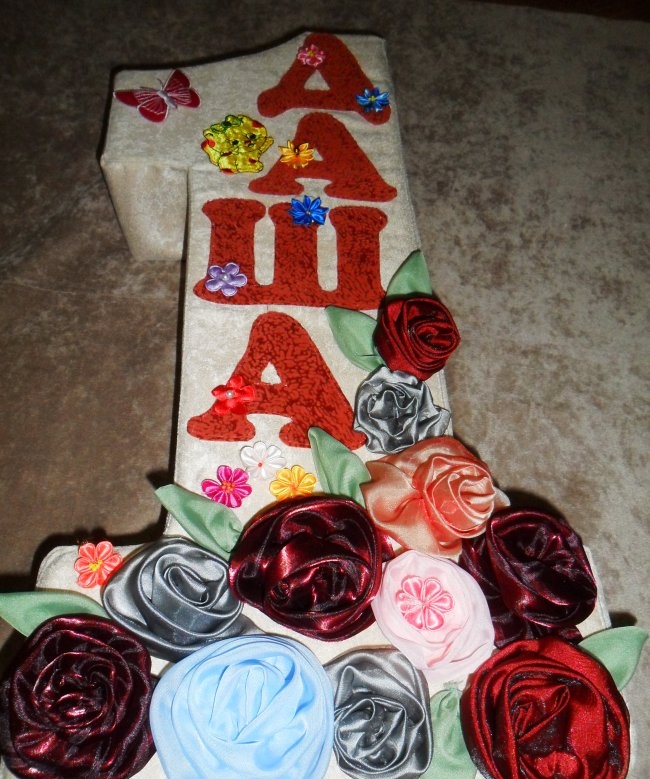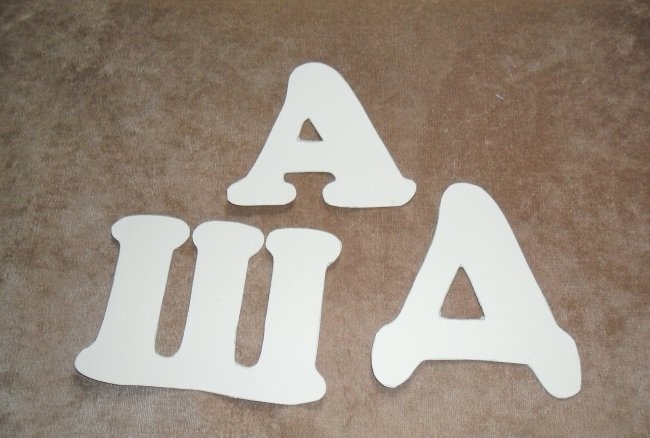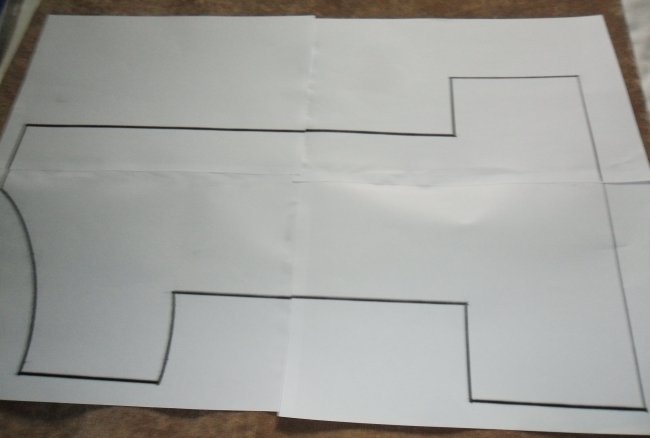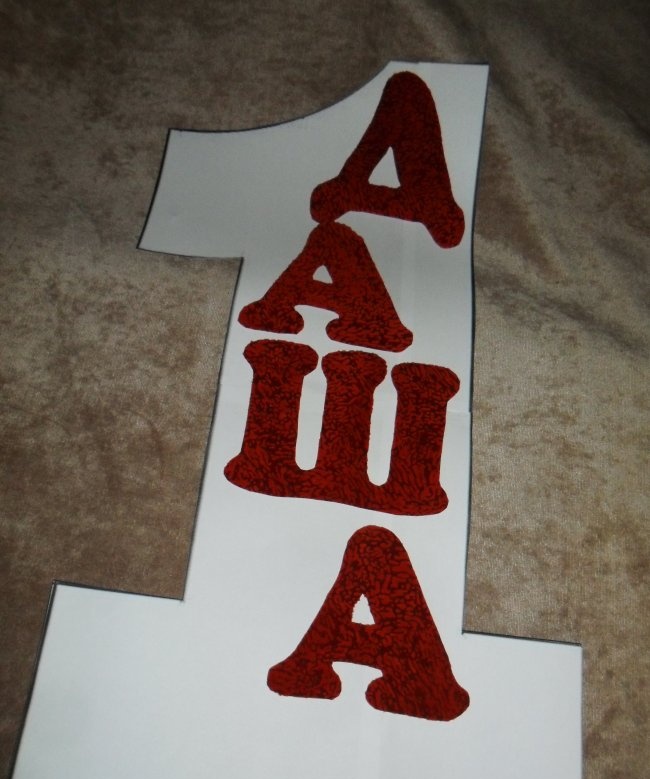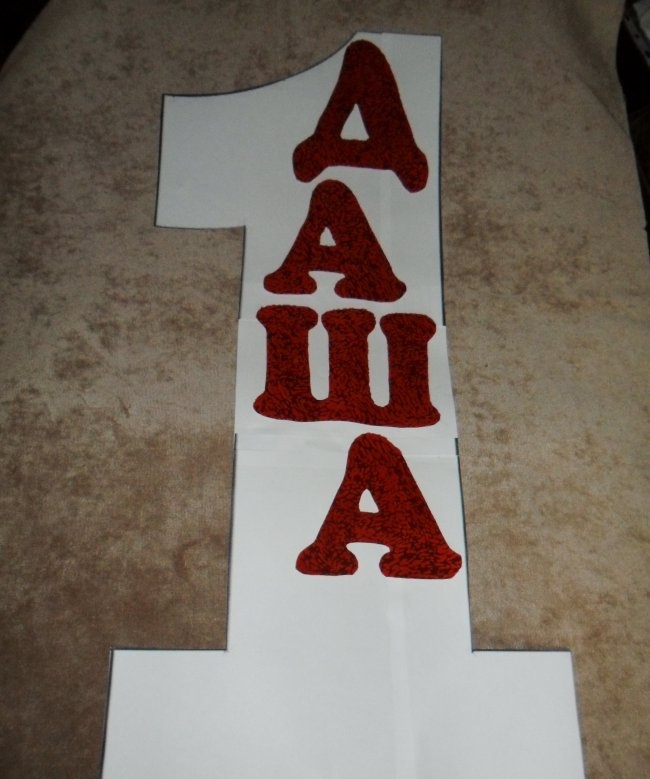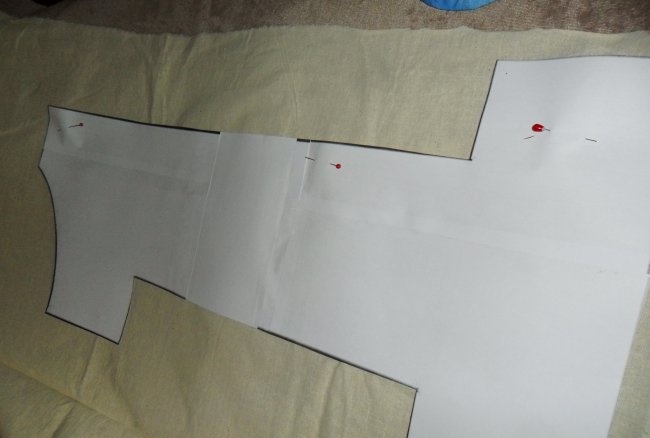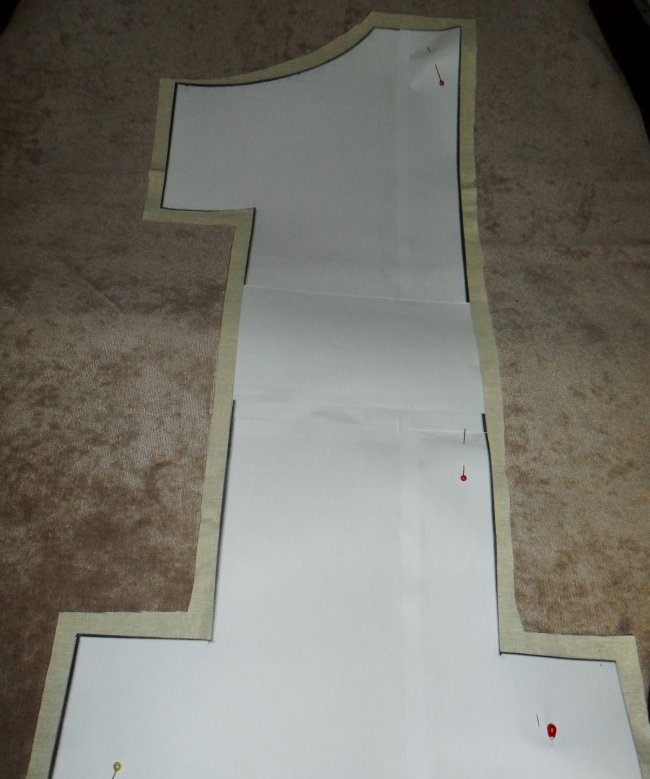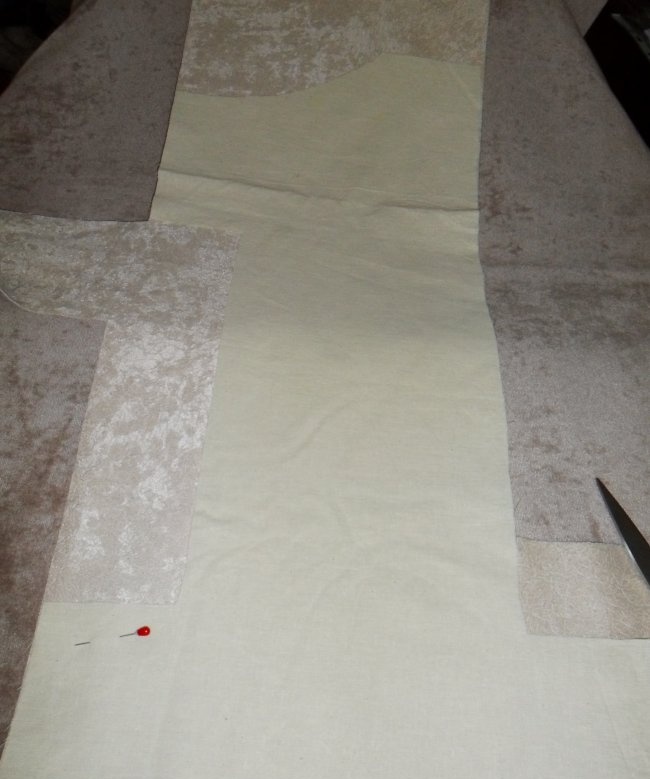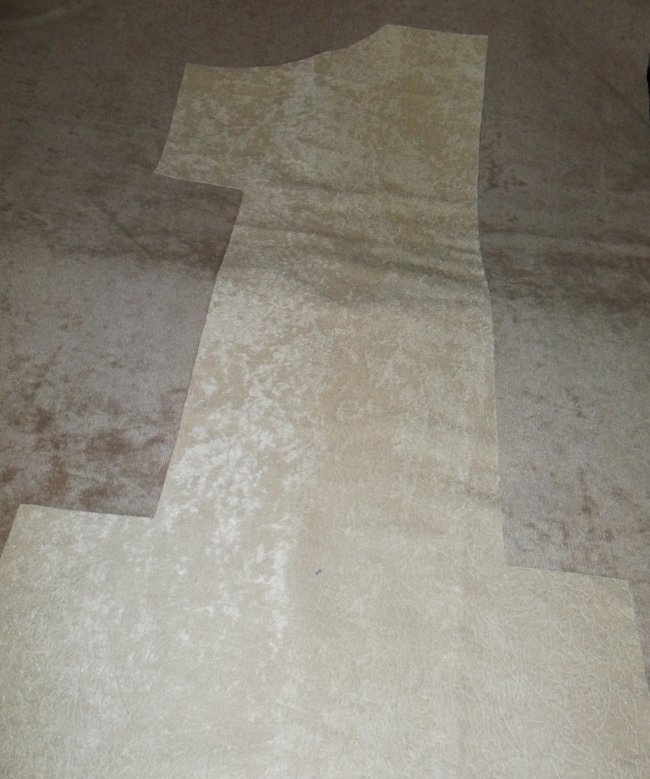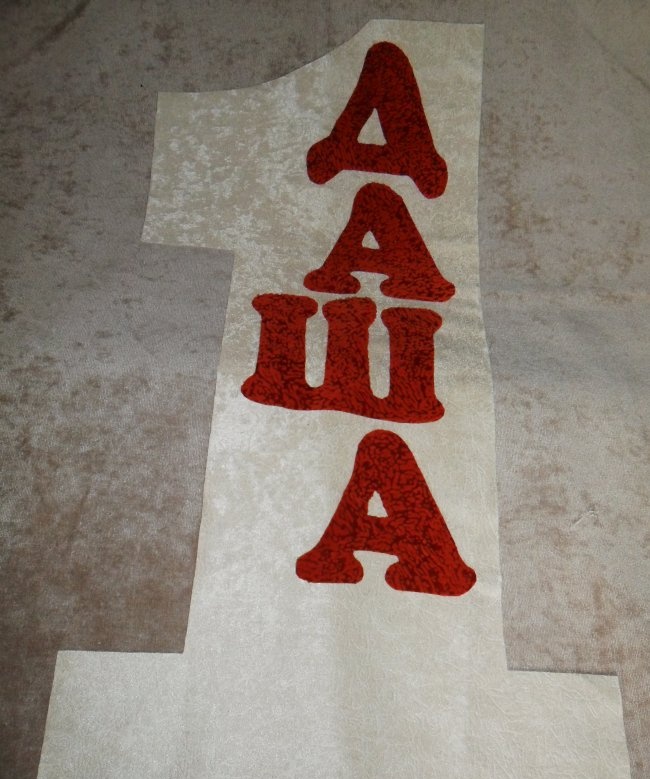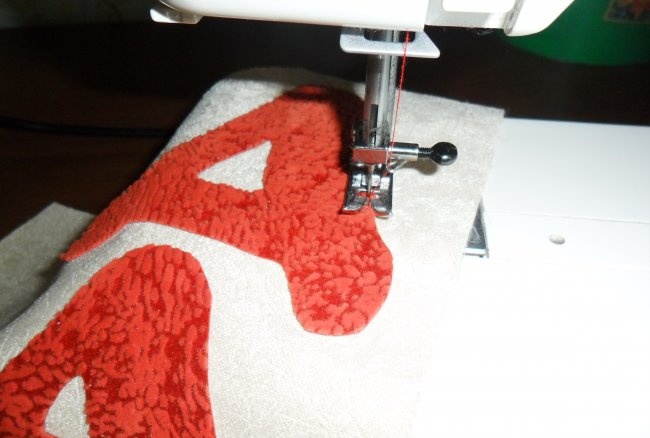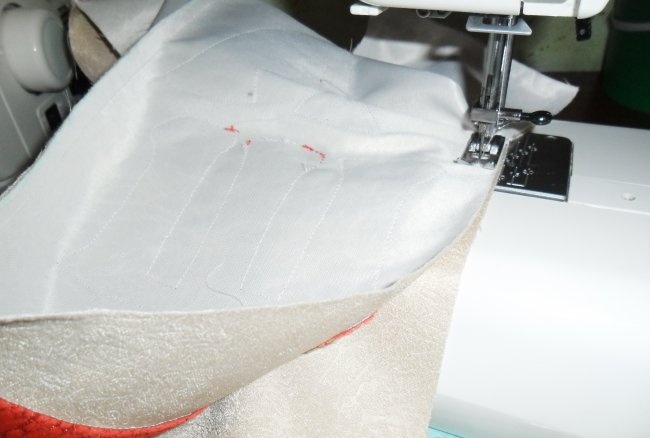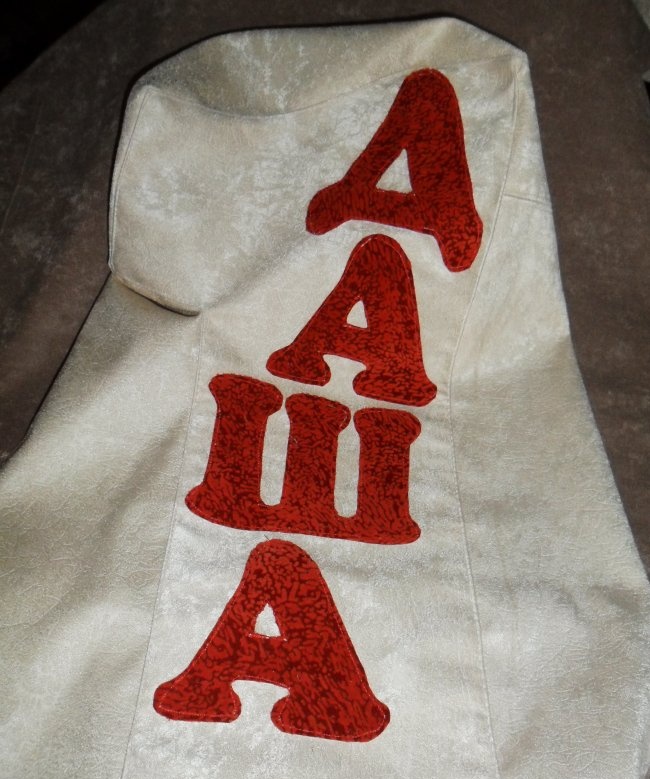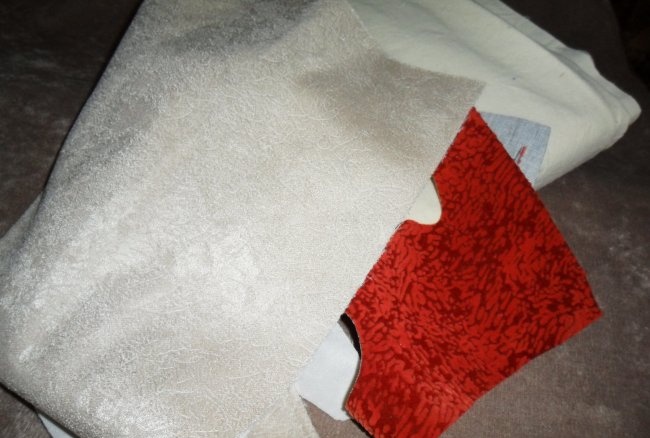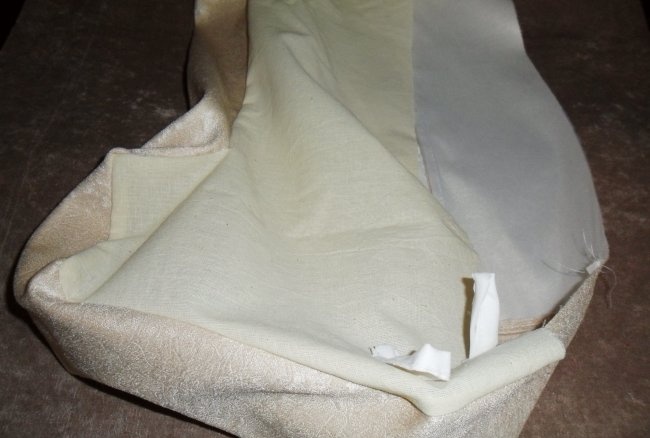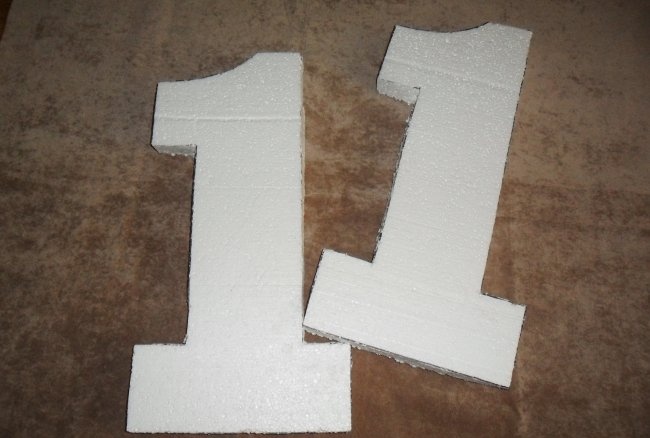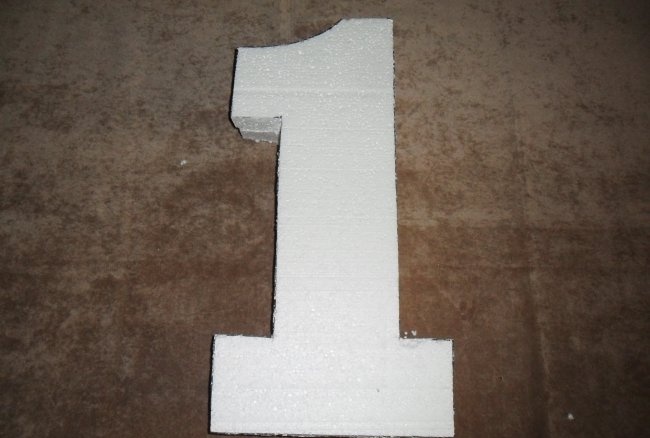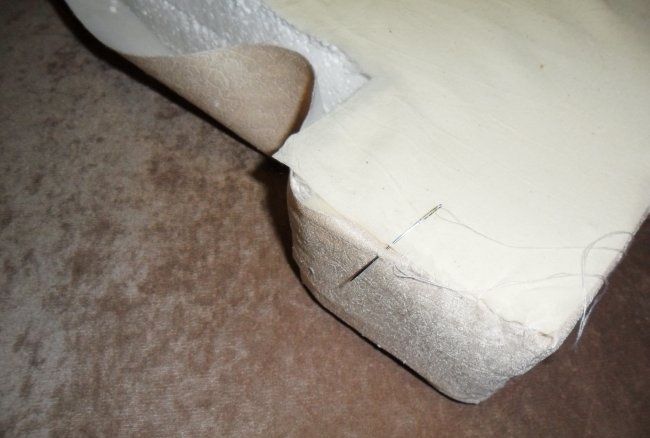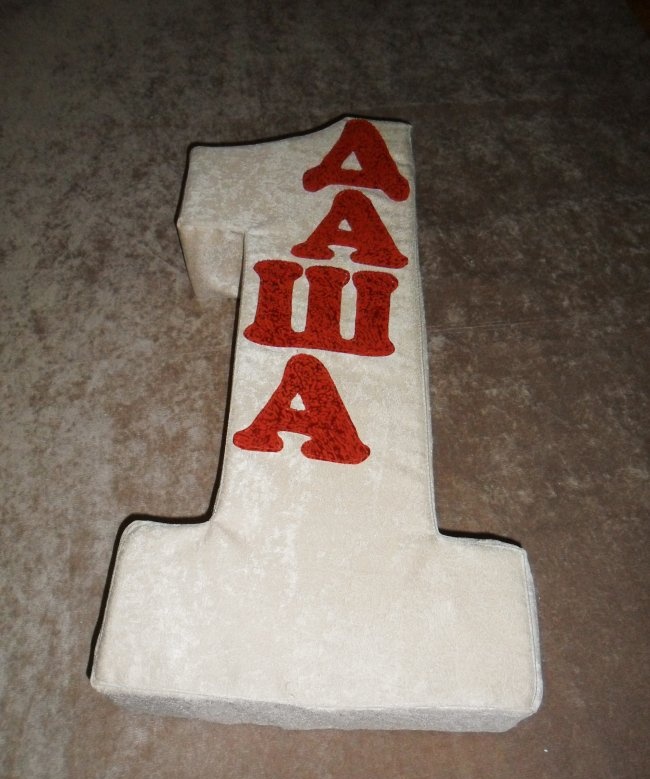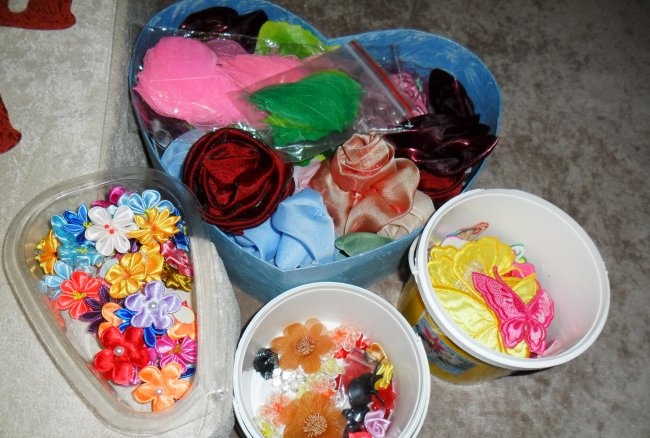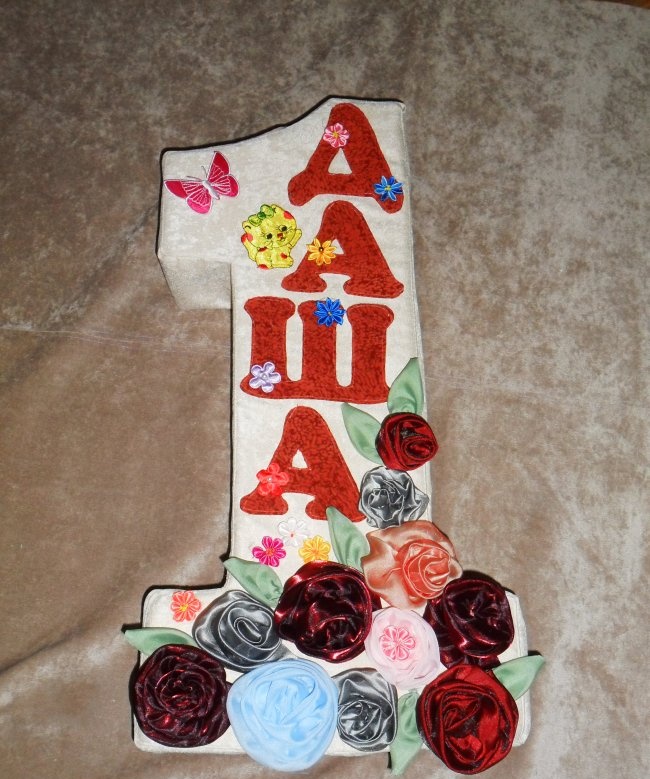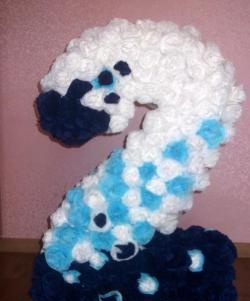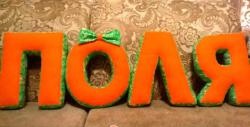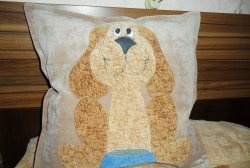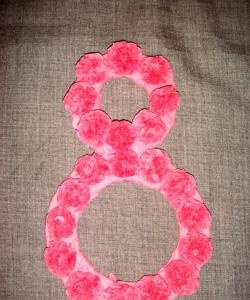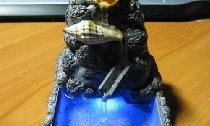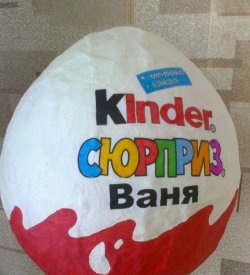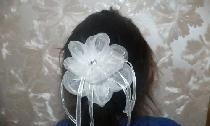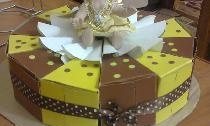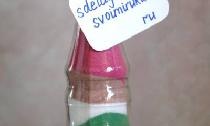Master class on making numbers
My granddaughter will soon turn one year old, and on this occasion I decided to make for her present - a large volumetric number one, which can be used to decorate a room and also be used when photographing the birthday girl.
On the Internet, I found a suitable outline for the number one, enlarged it to the size I needed using the Paint program (available on the computer in standard programs) and printed it out. The number was printed on several sheets. I glued these sheets together with a glue stick and cut out a number.
Then I also found beautiful letters on the Internet. I only needed three, since my granddaughter's name is Dasha. I also enlarged the letters on the computer to a height of 11 cm, printed them out and cut them out.
I laid out the letters on a paper pattern to see how it would all look, and decided to lengthen the number a little. To do this, I inserted a small piece into the middle of the number.
The figure turned out to be 62 cm high and the width of the “body” 17 cm. The preparatory work is completed, we need to think about what we will use next to make our figure. I decided to sew it, fill it with something and decorate it with flowers.
We select materials:
1. Thick fabric of light golden color (I have furniture fabric, but you can also use curtain fabric or just calico) for the base of the figure measuring 62 by 32 cm and for the sides - approximately 48 by 52 cm,
2. Chintz, matching the color of the main fabric - for the back side of the number,
3. Thick bright fabric (I also have furniture fabric, but you can use any fabric that doesn’t fray) for letters, about 25 by 25 cm,
4. Decorations (fabric flowers, leaves, beads, appliqués),
5. Filler for the letter (synthetic wool, foam rubber) or maybe something else will come up along the way,
6. Sewing machine, threads to match the main fabric, needle, glue stick and transparent Titan glue (if you have a glue gun, you can use it).
Let's start sewing numbers. We lay out the number pattern on the chintz, pin it and cut it out with a 1 cm allowance along the entire contour for the seam. We lay out the chintz number on the main fabric, pin it and cut it out. If you apply the number from the wrong side, do not forget to turn the pattern in the opposite direction so that the finished number “looks” correctly.
From the main fabric we cut 4 strips 12 cm wide and 52 cm long, so that when sewn together we get a strip approximately 200 cm long (I measured the perimeter of the entire figure, and it turned out to be almost 2 meters).
We lay out the letters on a bright fabric, trace their outline and cut them out. We lay out the letters on the number, choosing the best option and leaving space at the bottom to place flowers. I smear the letters with glue stick and glue them to the main fabric so that they do not slip when sewing. Sew on the letters.
We sew the strips along the 12 cm side and smooth the seams from the inside. Carefully sew the resulting strip around the entire perimeter of the number from the main fabric. Sew the beginning and end of the strip, cutting off the excess.We make cuts at the corners so that the fabric lies better, and we stitch along the seam on the front side.
We sew a chintz number (backdrop) to the stripe, first chipping it at the corners with the stripe. If you plan to hang the number, you can first sew a loop on the back. If the number is there, then this is not necessary. The backdrop should not be sewn along the entire contour, but an opening should be left behind the number through which the filler will be inserted. If it is foam rubber or synthetic wool, you can leave a small space, but if it is something hard and voluminous, then it is better to leave one side unsewn from top to bottom of the number.
The resulting product must be turned out and straightened well at the corners. I kept thinking about how to make the volume: foam rubber - the number will be convex; making a number from cardboard will take a long time and may get wrinkled. Then a brilliant idea came to my mind: we have foam plastic at work (it comes to the warehouse as packaging). It is in the form of sheets 5 cm thick. I gave the paper figure to the storekeepers and asked them to cut me two such units. Our men are reliable, in half an hour everything was ready, and my joy knew no end. The result was exactly what I needed: voluminous, firm, with a clear contour. In principle, this is not difficult to do at home; polystyrene foam is sold in hardware stores, and you can cut it with a paper knife.
At home, I glued these two numbers together and inserted them into a prepared fabric case, carefully sewing up the hole by hand. All that remains is to decorate our number.
For decoration, I decided to use different leaf flowers; I once tried to make flowers from fabric, so they came in handy.I also have store-bought flowers, leaves of different colors, beads and appliqués in stock.
We lay it all out beautifully on the figure and carefully glue it with a glue gun or Titan glue (you can also use any other transparent glue that is used for gluing ceiling tiles). This is the number we got. Let's hang it on the wall to decorate the room. I think that not only my granddaughter, but also all the guests will like it.
On the Internet, I found a suitable outline for the number one, enlarged it to the size I needed using the Paint program (available on the computer in standard programs) and printed it out. The number was printed on several sheets. I glued these sheets together with a glue stick and cut out a number.
Then I also found beautiful letters on the Internet. I only needed three, since my granddaughter's name is Dasha. I also enlarged the letters on the computer to a height of 11 cm, printed them out and cut them out.
I laid out the letters on a paper pattern to see how it would all look, and decided to lengthen the number a little. To do this, I inserted a small piece into the middle of the number.
The figure turned out to be 62 cm high and the width of the “body” 17 cm. The preparatory work is completed, we need to think about what we will use next to make our figure. I decided to sew it, fill it with something and decorate it with flowers.
We select materials:
1. Thick fabric of light golden color (I have furniture fabric, but you can also use curtain fabric or just calico) for the base of the figure measuring 62 by 32 cm and for the sides - approximately 48 by 52 cm,
2. Chintz, matching the color of the main fabric - for the back side of the number,
3. Thick bright fabric (I also have furniture fabric, but you can use any fabric that doesn’t fray) for letters, about 25 by 25 cm,
4. Decorations (fabric flowers, leaves, beads, appliqués),
5. Filler for the letter (synthetic wool, foam rubber) or maybe something else will come up along the way,
6. Sewing machine, threads to match the main fabric, needle, glue stick and transparent Titan glue (if you have a glue gun, you can use it).
Let's start sewing numbers. We lay out the number pattern on the chintz, pin it and cut it out with a 1 cm allowance along the entire contour for the seam. We lay out the chintz number on the main fabric, pin it and cut it out. If you apply the number from the wrong side, do not forget to turn the pattern in the opposite direction so that the finished number “looks” correctly.
From the main fabric we cut 4 strips 12 cm wide and 52 cm long, so that when sewn together we get a strip approximately 200 cm long (I measured the perimeter of the entire figure, and it turned out to be almost 2 meters).
We lay out the letters on a bright fabric, trace their outline and cut them out. We lay out the letters on the number, choosing the best option and leaving space at the bottom to place flowers. I smear the letters with glue stick and glue them to the main fabric so that they do not slip when sewing. Sew on the letters.
We sew the strips along the 12 cm side and smooth the seams from the inside. Carefully sew the resulting strip around the entire perimeter of the number from the main fabric. Sew the beginning and end of the strip, cutting off the excess.We make cuts at the corners so that the fabric lies better, and we stitch along the seam on the front side.
We sew a chintz number (backdrop) to the stripe, first chipping it at the corners with the stripe. If you plan to hang the number, you can first sew a loop on the back. If the number is there, then this is not necessary. The backdrop should not be sewn along the entire contour, but an opening should be left behind the number through which the filler will be inserted. If it is foam rubber or synthetic wool, you can leave a small space, but if it is something hard and voluminous, then it is better to leave one side unsewn from top to bottom of the number.
The resulting product must be turned out and straightened well at the corners. I kept thinking about how to make the volume: foam rubber - the number will be convex; making a number from cardboard will take a long time and may get wrinkled. Then a brilliant idea came to my mind: we have foam plastic at work (it comes to the warehouse as packaging). It is in the form of sheets 5 cm thick. I gave the paper figure to the storekeepers and asked them to cut me two such units. Our men are reliable, in half an hour everything was ready, and my joy knew no end. The result was exactly what I needed: voluminous, firm, with a clear contour. In principle, this is not difficult to do at home; polystyrene foam is sold in hardware stores, and you can cut it with a paper knife.
At home, I glued these two numbers together and inserted them into a prepared fabric case, carefully sewing up the hole by hand. All that remains is to decorate our number.
For decoration, I decided to use different leaf flowers; I once tried to make flowers from fabric, so they came in handy.I also have store-bought flowers, leaves of different colors, beads and appliqués in stock.
We lay it all out beautifully on the figure and carefully glue it with a glue gun or Titan glue (you can also use any other transparent glue that is used for gluing ceiling tiles). This is the number we got. Let's hang it on the wall to decorate the room. I think that not only my granddaughter, but also all the guests will like it.
Similar master classes
Particularly interesting
Comments (0)

